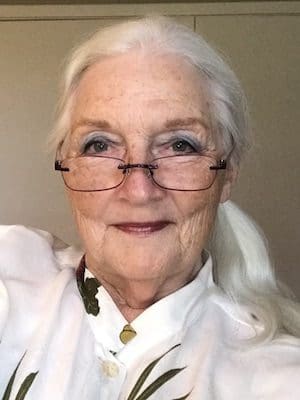
New York Times essayist William Safire dedicated his column one Sunday in 1986 to the phrase “Enough Already.” He was responding to earlier columns in The Boston Globe, The Guardian of London and Newsweek.
These were the President Bill Clinton years. According to some, Clinton’s foreign policy was a train wreck, as was his personal life.
Tim LaHaye’s “Left Behind” series screamed warnings of hell from every bookstand. The world was also careening toward the unknown horrors of massive computer blackouts at the turning of the millennium.
The Toronto Globe and Mail precipitated this urgent conversation by frequently using the phrase “Enough already!” These erudite commentators debated whether there should be a comma between “enough” and “already.”
It was enough to make the whole world want to throw up our hands and shout, “Enough! Already!”
Mr. Safire, however, had another interest in the phrase. He noted that “enough already” is a Yiddishism, a literal translation of “genug shoyn.” He reported that it came into the American lexicon by way of immigrant Yiddish speakers, whose English-speaking children no longer use the mother tongue.
My antecedents didn’t speak Yiddish, but I often find myself gritting my teeth and mentally shouting, “Enough already!”
I’ve had enough mean-spirited, bullying political talk. I’ve had enough of lies and half-truths. I’m tired of wars abroad and rumors of wars at home.
I’m sick of stories of church leaders in every denomination abusing girls, boys and women. I’m sick of having it all hushed up, covered up and tolerated by all-male committees of elders, deacons and other leaders, along with their complicit, compliant female counterparts.
I grieve for missing family members, loved ones and friends who refuse to be in the same room with us because we disagree about the date of the earth’s creation or believe in women’s rights to bodily autonomy.
I can almost hear God muttering, “genug shoyn, enough already.”
Pondering all this led me down a rabbit hole of Hebrew Scripture wonderings. Perhaps because I grew up in the West Texas desert, I have always been fascinated by the wilderness stories in Hebrew scripture.
My siblings and I grew up in another day and age. Odessa, Texas was a young town. By bike or on foot, we were allowed to wander all over it and wherever we went there was desert.
We played with Texas’ horned lizards. We called them horny toads in our schoolyards.
On the exciting occasions when it rained, tiny velvety red spiders emerged from the cracks in the barren ground. We thought they were baby tarantulas, but they were magical, never scary.
Surprising things appear in the desert – especially if you are new to the area.
The Hebrews were new to the Sinai Desert. They came from the richest, most fertile place in Egypt, the Delta.
Perhaps they had ancestral memories of the lush Jordan Valley, a tropical jungle in their patriarchal past. But only Moses had survived this desert journey twice.
The Hebrews were hungry, thirsty and tired of walking across the barren, rocky, seemingly endless landscape. The thrill of rebellion and joy of escape had turned to dust in the hot, dry air.
So they complained about Moses. Moses must have complained to God because God promised to rain bread from heaven. Sure enough, it was a miracle!
The next morning, there was heavy dew and as the sun dried it, white stuff bloomed all over their camp, between their tents and literally at their feet. Wherever they looked, there it was.
They didn’t have a name for it, so they just called it “whatisit, man hu” in Hebrew, which sounds a lot like “manna” to us.
Later, after more complaining, vast flocks of quail flew over and fell at their feet. There was more than enough food for everyone, even in the desert.
But God set conditions. They had to gather it every day except the Sabbath. And they couldn’t grab more than they needed.
We live in an age of never enough. Never enough time, never enough sleep, never enough money. Too little patience, too little courtesy, too little empathy.
We are living in a virtual wilderness of hopelessness, violence and greed. Can you hear God muttering, “genug shoyn, enough already?”
Perhaps, like those ancient wanderers, we should look where we’re standing. What is already all around us is waiting for us to take notice, wonder about, taste and discover. God has already provided enough if we have eyes to see and courage to try.
At the same time, we should look up, take heart and walk on, watching expectantly for the amazing surprises God has in store for us.
Author Sarah Bessey writes about a “resilient and stubborn” faith that is able to recognize God’s presence in our loneliest and most challenging circumstances. For a weary and anxious lot of us, those lonely, challenging circumstances are now.
Sadly, it may be that we are nowhere near the end of this wilderness journey. After all, our Hebrew forebears were only two months into their desert wanderings when they first tasted manna.
For these people of fire and cloud, quail and manna, the journey was just getting started. Now, it is our turn.
For some of our fellow trekkers, the desert is the only thing they have ever known. Their resilience and tenacity can hearten those of us whose journey until now has been less arduous.
All of us can be assured of one thing: God is no stranger to the wilderness. Just look where we’re standing. What we need is already here and God is providing enough already.

